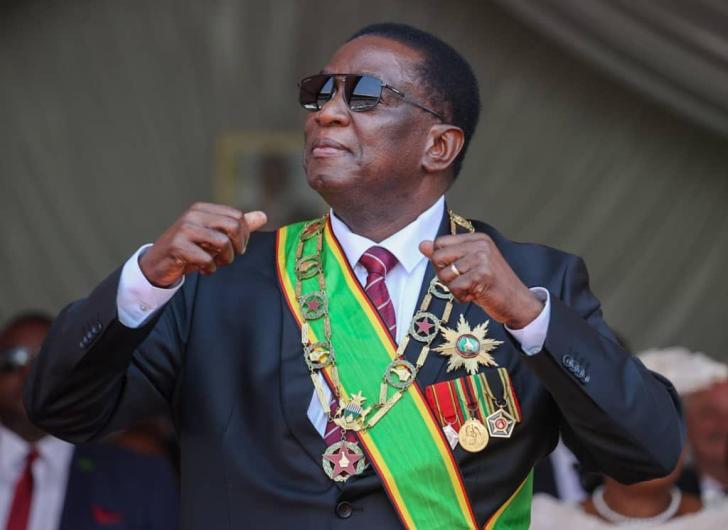News / Local
No peace for Mnangagwa
13 Oct 2023 at 05:37hrs |
3009 Views

The final report on Zimbabwe's August elections by the Southern African Development Community (SADC) has upheld its preliminary findings that the polls did not meet accepted regional and international standards. The report identified various issues related to Zimbabwe's legal framework, the independence of the Zimbabwe Electoral Commission (ZEC), postal voting by state security agencies, media, the diaspora vote, and the involvement of a shadowy organization called Forever Associates Zimbabwe (FAZ). The report also pointed out concerns about the judiciary and the inconsistent application of laws by the police, which had an impact on the election.
This final report, signed by the SADC Chairperson of the Organ on Politics, Zambian President Hakainde Hichilema, reiterated the preliminary findings made by Nevers Mumba, the head of SADC's Election Observer Mission (EOM). However, SADC's position does not automatically lead to fresh elections in Zimbabwe, as the reports serve mainly for recommendation purposes.
The report emphasized concerns over the delimitation exercise conducted by ZEC in 2022, with stakeholders claiming that the process did not meet constitutional requirements and raised questions about its accuracy. It also highlighted issues related to increased nomination fees, which were deemed restrictive and potentially excluded less affluent community members from participating in the elections, including female presidential candidates.
SADC's findings are in line with reports from other international and local observer missions, which also concluded that the election did not fully represent the will of Zimbabweans. President Emmerson Mnangagwa's legitimacy is being questioned, particularly by the opposition led by Nelson Chamisa, who received 44% of the vote, according to ZEC.
Of SADC's 16 Heads of State, only those from Mozambique, South Africa, and the Democratic Republic of Congo attended Mnangagwa's inauguration, which has raised concerns about his international legitimacy, according to the opposition.
This final report, signed by the SADC Chairperson of the Organ on Politics, Zambian President Hakainde Hichilema, reiterated the preliminary findings made by Nevers Mumba, the head of SADC's Election Observer Mission (EOM). However, SADC's position does not automatically lead to fresh elections in Zimbabwe, as the reports serve mainly for recommendation purposes.
The report emphasized concerns over the delimitation exercise conducted by ZEC in 2022, with stakeholders claiming that the process did not meet constitutional requirements and raised questions about its accuracy. It also highlighted issues related to increased nomination fees, which were deemed restrictive and potentially excluded less affluent community members from participating in the elections, including female presidential candidates.
SADC's findings are in line with reports from other international and local observer missions, which also concluded that the election did not fully represent the will of Zimbabweans. President Emmerson Mnangagwa's legitimacy is being questioned, particularly by the opposition led by Nelson Chamisa, who received 44% of the vote, according to ZEC.
Of SADC's 16 Heads of State, only those from Mozambique, South Africa, and the Democratic Republic of Congo attended Mnangagwa's inauguration, which has raised concerns about his international legitimacy, according to the opposition.
Source - NewZimbabwe
Join the discussion
Loading comments…



































